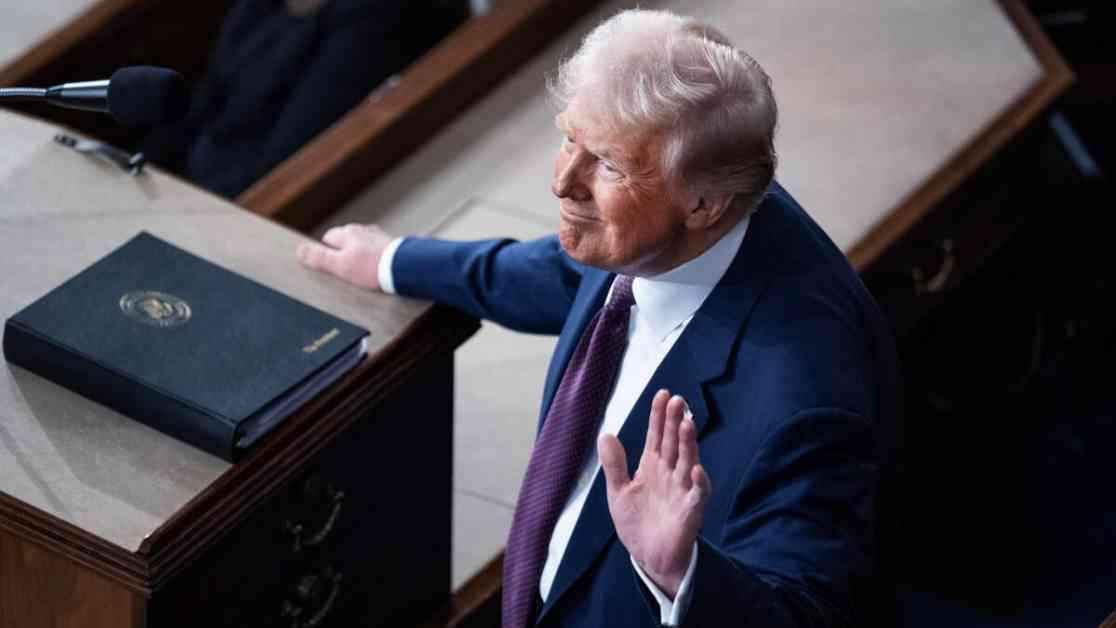President Trump’s recent conversations with Canadian Prime Minister Justin Trudeau have sparked controversy over U.S. tariffs, fentanyl, and immigration policies. Trump’s claims linking Trudeau’s border policies to fentanyl trafficking and undocumented migrants have raised eyebrows and ignited debate on both sides of the political spectrum.
Trump’s Tough Negotiator Stance and Policy Wars
In his typical fashion, Trump took to his Truth Social platform to express his concerns about the flow of fentanyl and migrants into the U.S. from Canada. Despite Trudeau’s reassurances that the situation has improved, Trump remained unsatisfied, emphasizing the need for stronger border control measures. This exchange highlights Trump’s unwavering stance on issues related to illegal immigration and synthetic opioid deaths, which have been central to his political agenda.
However, data from U.S. Customs and Border Protection reveals that seizures of fentanyl at the northern border represent less than 1% of all recent U.S. seizures of the drug. Similarly, apprehensions of undocumented migrants at the northern border make up only about 1.5% of total nationwide apprehensions, questioning the validity of Trump’s claims regarding these issues. Trudeau has been quick to point out these statistics, arguing that Trump’s focus on these minor incidents is merely a pretext for initiating a trade war with Canada.
Trump’s Controversial Policies and Public Backlash
Apart from his stance on immigration and fentanyl, Trump has also faced criticism for his policies regarding transgender rights and USAID funding. Trump’s attacks on transgender individuals, who make up a small percentage of the population, and his efforts to reduce USAID funding, which constitutes less than 1% of the federal budget, have drawn sharp criticism from various quarters.
Critics, including LGBTQ+ rights organizations and experts, have condemned Trump’s discriminatory policies and the disproportionate attention given to minor issues. Transgender actress Laverne Cox criticized Trump for spreading misinformation about the transgender community, highlighting the lack of real impact they have on the lives of ordinary Americans. Similarly, the focus on USAID funding and the vilification of transgender individuals have been labeled as distractions from more pressing concerns.
Experts, such as Kathleen Hall Jamieson, have underscored the need to view Trump’s policies in the proper context and scale. While Trump’s tactics of amplifying small issues to stoke fear among his base may be politically effective, they can have far-reaching consequences. The exaggeration of problems and the misrepresentation of their significance can lead to unnecessary tensions and discord within the country.
Jamieson emphasizes the importance of educating the public on the actual facts surrounding these issues to prevent undue alarm and misinformation. By providing accurate information and contextualizing Trump’s policies, Americans can make more informed decisions and moderate their opinions accordingly.
In conclusion, Trump’s recent policy battles and controversial statements have once again brought to light the complexities of governance and the impact of political rhetoric on public discourse. As the debate rages on, it is crucial for individuals to critically analyze the information presented and seek a deeper understanding of the issues at hand. Only through informed dialogue and thoughtful reflection can the nation move towards a more cohesive and inclusive future.


